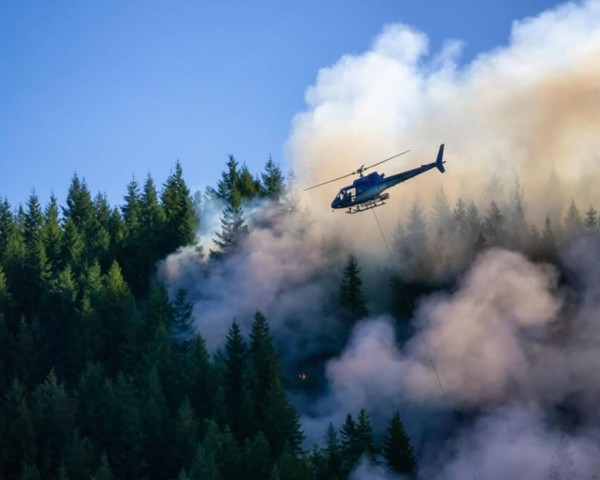Raging wildfires and smoky skies across much of Canada have damaged many travel and tourism projects in Canada this summer, leading to the cancellation of activities and the closure of businesses.
According to the World Travel and Tourism Council, Canada’s travel and tourism industry was estimated to recover from the pandemic this year. However, Emergency Preparedness Minister Bill Blair has warned that 2023 may be Canada’s worst year for wildfires and will definitely impact summer tourism in the country. As a result, access to forests has been banned in some regions of Quebec. Many wilderness outfitters have been forced to close during a peak season due to restrictions and wildfires.
According to Dominic Dugré, the president of Fédération des pourvoiries du Québec, out of over 500 outfitters in Quebec’s forests, 350 have been forced to close. The areas currently most impacted by forest fires in Quebec are Abitibi-Témiscamingue and Nord-du-Québec.
Tourisme Val-d’Or’s executive director, Nancy Arpin, highlights the region’s abundance of forests, making it an ideal playground for Abitibi-Témiscamingue. Additionally, she notes that Val d’Or is near Réserve faunique La Vérendrye and Route 117. This is the main highway linking northwestern Quebec to the urban areas of southwestern Quebec and the Trans-Canada Highway. However, the latter is currently closed due to smoke.
The wildfires in northern Saskatchewan have postponed the aboriginal tourism conference. In addition, tourism businesses in northern Ontario are facing cancellations from both domestic and international visitors.
To address the poor air quality caused by wildfires, Canada’s Wonderland amusement park in Ontario is providing employees with extra masks and breaks. Meanwhile, the Toronto Zoo has taken measures to ensure the safety of its animals by allowing them to go inside where there is extra ventilation.




